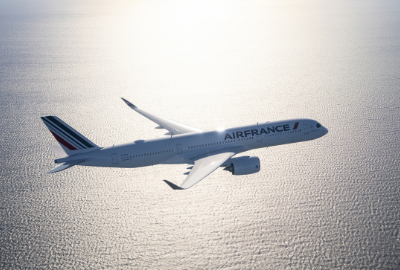KLM to Porto & Edmonton in Sustainable Flight Challenge
KLM has taken its Fly Responsibly initiative from 2019 a big step further by participating in the Sustainable Flight Challenge. The airline went to great lengths to make KL0675 from Amsterdam to Edmonton (Canada) and KL1713 to Porto, on May 7, the most sustainable flights ever. KLM is one of sixteen SkyTeam airlines involved in this Challenge, dedicated to competing in sustainability, but also to learn from each other's experiences.
The Sustainable Flight Challenge was initiated by a group of enthusiastic KLM employees who were inspired by the famous London-Melbourne Air Race of 1934, which aimed to expand global access to the world and connect people. Long-distance flights are no longer a challenge to the air transport industry, but sustainability presents a new frontier.
Today, the Sustainability Flight Challenge brings out the most creative and clever ideas among participating airlines. On May 7, it was KLM's turn to offer its best sustainability performance ever.
 KLM Boeing 787-9
KLM Boeing 787-9
Sustainable flights to Edmonton and Porto
- The KLM flight to Edmonton and KLM Cityhopper flight to Porto (the challenge involves a long and a short flight) have undergone the broadest possible array of sustainability measures.
- KLM decided to operate the two most economical aircraft, the Boeing 787-10 and Embraer 190.
- On the flight, both aircraft were powered by a fuel blend consisting of 39% SAF.
- A wide array of new weight-reduction measures were taken on board. For example, World Business Class passengers were asked to choose their preferred meal in advance.
- AI modelling was used to predict inflight water requirements, ensuring that the precise volume was catered.
- Pilots worked with air traffic controllers to fly the most efficient route, avoiding the detours that flights often face.
- Loading was fully optimised to ensure the best centre of gravity, improving aerodynamics and generating fuel savings ranging from 1.5 to 2%. Cargo in the belly was stacked on lighter pallets and secured with more lightweight nets. Transport companies delivering cargo were asked to use vehicles powered by electricity or biodiesel.
- A total of more than 50 existing and new measures were taken aboard both flights, involving all KLM divisions as well as partners such as Edmonton Airport, Amsterdam Airport Schiphol, Air Traffic Control the Netherlands (LVNL) and General Electric.
KLM has informed passengers that their flight had a special purpose. The airline provided them with information on how they can travel more sustainably, for example, by supporting the CO2ZERO compensation programme or by contributing to SAF.


